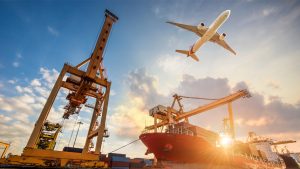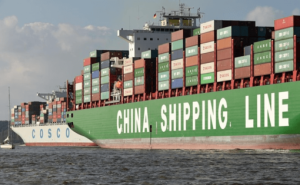Oil prices have risen following joint attacks against Yemen’s Houthi rebels, in response to the rebel group’s siege of merchant ships transiting the Red Sea.
For the first time this year, Brent crude oil hit $80 a barrel, as concerns grow about the economic impact of the disruption to international trade through the Red Sea and Suez Canal, and escalating tensions in the Middle East. .
The cost of shipping containers tripled on some routes, meaning companies could choose to pass that expense on to consumers, amid the biggest maritime emergency of its kind since a ship stuck in the Suez Canal paralyzed much of the economy. share of world trade in 2021.
Following the start of Houthi attacks in late November, the world’s largest shipping lines have halted shipping through the Red Sea, diverting container shipping around the Cape of Good Hope at the southern tip of Africa, adding thousands of kilometers to trips, increasing costs and delaying deliveries of vital components for the product and consumer goods manufacturing chain.
And it is that a wide range of consumer products, from electronics to food, clothing or furniture – in addition to oil and liquefied gas – usually travel through the waters that separate Africa and the Arabian Peninsula en route to the Suez Canal, through which between 12% and 15% of world trade passes.
Increase in the cost of maritime transportation
“In recent days we have seen dramatic increases in the costs of shipping containers on several critical trade routes,” Willy Shih, professor at Harvard Business School, told BBC Mundo.
The price of moving a container from East Asia to Northern Europe has increased 199% in recent weeks, according to data from Freightos, an international freight and market analysis company.
Although the Shanghai-Rotterdam sea route has been one of the most affected, the routes that link Shanghai with Genoa, Los Angeles and New York have also suffered the consequences of the crisis in the Red Sea.
The issue is even more challenging for global shipping. “We have two crises simultaneously” that are affecting shipping routes, Shih noted.
“The economic consequences of attacks on commercial ships in the Red Sea depend on their duration,” he noted.









